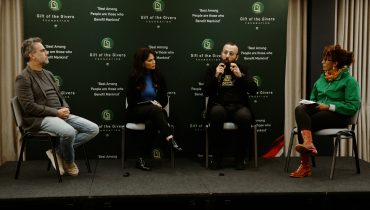Fasting is the fourth pillar of Islam, as mentioned in Al-Baqarah, “The Cow”, in the Holy Qu’ran: “Oh you who believe, fasting is prescribed for you as it was prescribed for those before you, that you may develop God-consciousness.” (2: 183).
In light of the purpose of fasting informed by this verse, fasting may take on many forms aside from the physical fast, where Muslims stay away from all that is made lawful, including food and drink from dawn until dusk. In order to attain a personal sense of God-consciousness, fasting also has a spiritual purpose: to access the higher self by being mindful of our words with others and to moderate and keep our lower carnal desires and tempers in check.
Muslims of the 21st century also face the challenge of deepening the spiritual aspect of our fasting by exercising a heightened sense of consciousness when living in the social media age. Research shows that 58,6%, more than half the world’s population, are now frequenting social media sites such as Facebook, YouTube and WhatsApp the most respectively. According to the GWI (2021), more than 95% of people aged 16 – 64 years use social networks and messaging platforms per month. While the average user time for social media platforms is 2 hours and 24 minutes, research shows that people are still spending close to 7 hours a day using the internet recreationally with 92.1% of total internet users accessing it from the palm of their hands. Although social media sites allow its users to self-navigate and manage settings and algorithms to their liking, still the news feed sections within social media platforms are relatively unfiltered. One may easily fall down the rabbit hole of social media hyperlinks and be tempted to excessively engage with this information – be it gossip, non-beneficial entertainment or sensational news – a feat made somewhat easier with an increase in average internet speed globally, thereby detaching us from our heightened consciousness and leaving the purpose of fasting unfulfilled.
These challenges leave the ordinary Muslim with having to make an extreme, arguably unsustainable, decision – to leave social media altogether during Ramadaan – only to return later once Ramadaan comes to an end and Eid celebrations are in full swing. While depriving yourself of social media for the month of Ramadaan may be the common choice for Muslims who lead busy lives both on and offline, this lifestyle decision may also be in stark contrast to another verse from Al-Baqara in the Qur’an, where Muslims are encouraged towards moderation: “We have appointed you a middle nation (ummatan wasatan), that you may be witnesses against mankind, and that the messenger may be a witness against you” (2: 143). With Islam being the religion of the “middle” path, acquiring social media literacy may therefore be a solution for Muslims both during and after Ramadaan in order to practice consistency and maintain a healthy balance during their social media fasting.
Social media literacy has no formal definition, but broadly refers to the knowledge and sensibility on the part of the user to evaluate information online and exercise self-restraint accordingly, essentially training your internal navigation system to tell you when it’s not okay to fall down that rabbit hole. Social media literacy may also include emotional intelligence when navigating the intelligence of the ‘smart’ world. Acquiring and practicing social media literacy is a more realistic way for Muslims to practice their social media fasts, as this steers away from extreme social media deprivation that they cannot maintain after Ramadaan, bearing in mind that the fasting person might also be using social media for professional and other positive reasons too.
These balanced online practices are imperative for how Muslims living in the 21st century sustain their sense of God-consciousness, as instructed by the Quran, from one Ramadaan to the next. Here are some DO’s & RATHER NOT’s for successfully practicing social media literacy during and after Ramadaan:
- Only keep on your phone your most essential social media apps, and uninstalling the rest (you can always log-on via the web if you need to)
- Silencing your inner Pavlov’s Dog: Deactivating your phone’s notification tone and allocating a set time everyday to check your messages
- Only engage in the comments section after abiding by these rules: Is it true? Is it necessary? Is it kind?
By Zainab Bean (Senior Exec Producer, Radio 786), Tasneem Daniels (Exec Producer, Radio 786), Qaadirah Mohammed (Presenter, Radio 786)









